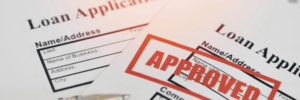How to Buy Land with Bad Credit: Everything You Need to Know

Buying land with bad credit may seem out of reach, but it’s not impossible. While a low credit score makes traditional financing harder to obtain, alternative options can still make land ownership a reality. This guide covers land loans, key considerations like zoning and property taxes, and strategies to improve your approval chances. Whether you’re looking to build a home or invest, learn how to navigate land buying with bad credit and secure the best financing option for your situation.
Buying land with bad credit seems like a far off dream, but it’s not impossible. Having a low score makes conventional loans harder to get, often requiring alternative financing or additional steps to get approved. Whether you want to build a home or invest in property, understanding the challenges and strategies for buying land with bad credit can help you make that dream a reality.
In this guide we’ll cover key considerations, how to boost your approval chances and financing options that work even with not so perfect credit.
Land Loans
What is a Land Loan?
A land loan is a special type of financing to help you buy a piece of land, whether residential, commercial or other uses. Unlike traditional home loans, land loans are secured by the land itself, so if you default on the loan the lender can repossess the property.
How Do Land Loans Work?
Land loans work like other types of loans, you need to put money down and reoccurring payments over a set term. Typically land loans are amortizing, meaning your fixed monthly payment will cover mostly interest in the beginning and the principal amount will be reduced more towards the end of the term. Since land loans are riskier than mortgages, lenders require a higher score and a bigger down payment.
Important Things to Consider When Buying Land with Bad Credit
Higher Interest Rates & Shorter Loan Terms
When purchasing land with bad credit you can expect interest rates to be 8-15%. If your credit is really bad the rate can be even higher. A poor credit score can result to even higher interest rates. These rates are way higher than traditional home loan rates, since land loans are generally riskier.
Zoning, Utilities & Land Use
The zoning of the land plays a big role in its financing. If the land is zoned for residential or commercial use it’s considered more valuable and desirable to lenders so you may get better terms. But raw land that has no utilities, roads or structures is harder to finance.
Lenders see this type of land as a risk since there are costs and uncertainties involved in developing it. On the other hand land with access to basic utilities (water, electricity and roads) is easier to finance and usually comes with better terms since it’s ready for development or construction.
Property Taxes & Other Costs
Even if you are purchasing land without a mortgage you are still responsible to pay property taxes on it. These taxes are based on the land’s value and can be significant depending on the location. Besides taxes, there are other costs involved in buying and developing land.
These include surveying fees, permits, clearing fees (if the land needs to be prepared for development), and development costs such as installing utilities or building roads. You need to factor these extra costs into your overall budget since they can add up fast.
Land as Collateral
In some cases lenders will use the land itself as collateral to secure the loan. Understanding the lender’s minimum equity loan requirements is important when using land as collateral. This means that if you default on the loan the lender can repossess the land.
This type of arrangement is common with land loans especially when traditional credit-based financing is not available due to bad credit. But you need to evaluate if you’re comfortable with the risk of losing the land if you can’t make payments.
Credit Score Requirements
When it comes to land loans, your score matters. Generally lenders look for a credit score of 620 or higher. But if you have a lower score you might still be able to get financing by putting down more money or shorter term. For those with poor scores alternative financing options like subprime personal loans or home equity loans can be a solution. You need to shop around and compare offers from different lenders to find the best deal for your credit situation. Improving your credit score before applying can also boost your approval chances and get you better loan terms.
How to Buy Land with Bad Credit
1. Improve Your Credit Score
Even small improvements to your credit score can make a big difference in getting a land loan with better terms especially if you have a low score. Here are a few ways to boost your credit score:
- Check & Fix Your Credit Report
Start by reviewing your credit reports from all three bureaus (Equifax, Experian and TransUnion) to check for errors or inaccuracies. Common mistakes might include incorrect account balances, outdated information or wrongly reported late payments. Dispute these errors as getting them corrected can increase your score. If you’re looking for a way to simplify this process services like Dovly can automate much of the work for you making credit repair more efficient. - Lower Your Credit Utilization
Your credit utilization rate (the percentage of your available credit you’re using) plays a big role in your score. Keeping credit card balances below 30% of your total credit limit is ideal. Paying off high balances and avoiding maxing out cards can quickly improve your credit score which in turn may get you better loan terms. - Make On-Time Payments
Your payment history is the most important factor affecting your score. Making on-time payments for even a few months can lead to a significant improvement in your score. Set reminders or automate your payments to ensure they’re always made on time as consistency is key to showing lenders you’re reliable. - Don’t Apply for New Credit
When you apply for new credit a hard inquiry is made on your credit report which temporarily lowers your score. Don’t apply for multiple loans or credit cards at the same time. Each new credit application can further delay the improvement of your credit and make it harder to get approved for land loans.
2. Put Down a Larger Down Payment
Putting more money down is one of the best ways to increase your chances of getting land loan with bad credit. While traditional land loans require at least 20-50% down if you have poor credit, putting down more money can reduce the lender’s risk and increase your approval chances. It shows to lenders you’re financially responsible and invested in the purchase which can offset concerns about your credit history. If you can afford it putting down a bigger down payment can also get you lower monthly payments and less interest over the life of the loan.
3. Find a Co-Signer
A co-signer can strengthen your application and get you approved. If you can’t get financing on your own due to bad credit a co-signer with good credit can give lenders the added assurance they need to approve your loan.
Remember your co-signer will be responsible for the loan if you default so it’s essential to maintain open communication and honor your repayment commitments. While a co-signer can improve your chances it’s important to remember this is a big commitment for both parties.
4. Show Proof of Strong Finances
Lenders don’t just look at credit they also consider your overall financial situation. If your credit isn’t great showing other aspects of your financial situation can still get you approved. Here’s what lenders look for:
- Stable Income and Employment History
Lenders want to know you can make loan payments. Having a savings account, and a consistent job or income stream with a reliable work history (usually two years) shows you can repay the loan. - Low Debt-to-Income (DTI) Ratio
This looks at the percentage of your monthly income that goes towards debt payments. Lenders prefer a DTI ratio below 43%, meaning your debt payments should be less than half of your monthly income. Lower DTI ratios are good and shows you can take on more debt without struggling financially. - Assets (Savings, Investments or Owned Properties)
Having savings, investments, or property can strengthen your loan application, as they show financial stability and reduce risk. If you have assets that can be used to collateralize the loan, this may also offset concerns about your credit history.
Land Loans for Bad Credit
Traditional Land Loans
Traditional land loans are offered by banks and credit unions but require a higher down payment of 20-50%. Mortgage lenders loan based on the investment potential of a property rather than the borrower’s credit history. These loans have stricter credit requirements, but strong financials can improve approval chances. Unlike a regular mortgage, land loans have shorter repayment terms usually between 5-15 years instead of the 30 year term.
USDA Loans (If You Plan to Build a Home)
If you plan to purchase in a rural area and build a home, USDA loans could be an option. These government backed loans require low or no down payment and have more flexible credit requirements. But you must have strong financials and show a plan to develop the land with a primary residence.
Home Equity Loan or HELOC
If you already own a home a home equity loan or home equity line of credit (HELOC) can help finance a land purchase. These loans allow you to borrow against your existing home’s equity, often at a lower interest rate than a land loan. Approval depends more on your home’s value and available equity rather than your credit alone.
Personal Loans
Personal loans are an option if you can’t get a land loan but they come with higher interest rates. Local credit unions offer subprime personal loans to borrowers with varying credit scores. Lenders look at income and debt-to-income ratio rather than collateral. These loans are capped at lower amounts so better for smaller land purchases rather than large tracts.
Alternative Land Loan Options for Bad Credit
Seller Financing
Seller financing allows you to make monthly payments to the seller instead of a traditional loan. The terms, including interest rates and down payment, are negotiable and some sellers may not require a credit check. However, they might ask for proof of income to ensure you can make payments.
Hard Money Loans
Hard money loans are from private lenders who base approval on the land’s value rather than the borrower’s credit. These loans are an alternative to traditional mortgage lenders, focusing on the investment potential of the property. These loans have high interest rates (10-15%) but offer faster approval and fewer credit restrictions. Best for buyers looking to flip land or secure short term financing.
Lease-to-Own Agreements
A lease-to-own agreement allows you to rent the land with the option to buy later. Some agreements apply a portion of rent payments toward the purchase price, if you need time to improve your credit before getting a traditional loan.
Peer-to-Peer Lending
There are platforms that can connect borrowers with private investors willing to fund land purchases. Terms and interest rates vary by lender but are often more flexible than bank loans. These loans are good for buyers who can’t get financing through conventional means.
Conclusion
Buying land with bad credit takes some extra work but it’s doable if you’re prepared. By improving your credit, exploring alternative financing options and presenting a strong financial profile you can increase your approval chances.
Ready to start the buying process? Review your credit and check out Dovly’s services to simplify the process of improving your credit. Your land purchase is closer than you think—get started now!
Frequently Asked Questions





